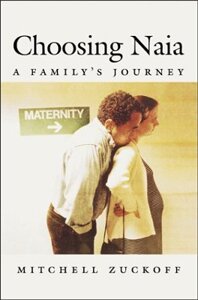La Leche FAQ: Breastfeeding
Our FAQs present information from La Leche League International on topics of interest to parents of breastfed children. Not all of the information may be pertinent to your family’s lifestyle. This information is general in nature and not intended to be advice, medical or otherwise. If you have a serious breastfeeding problem or concern, you are strongly encouraged to talk directly to a La Leche League Leader. Please consult health care professionals on any medical issue, as La Leche League Leaders are not medical practitioners.
How wonderful that you want to give your baby the precious gift of breast milk! Babies with Down syndrome experience special benefits from breastfeeding beyond the myriad of advantages to healthy newborns:
Breastfeeding
Babies with special needs are often bombarded with a variety of health problems early on. Those babies who have Down syndrome often face respiratory tract infections and bowel problems. They can benefit from the gentle protection human milk provides. Breastfeeding also helps establish a bond in the midst of the strong emotions and high stress surrounding the birth of a child who has special needs.
Down Syndrome Neonatal Health Care Guidelines
(Based on “Health Supervision for Children with Down Syndrome” as published in Pediatrics August 2011)
Down Syndrome Infant Health Care Guidelines
From First Eye Contact: Speech and Communication in Babies with Down Syndrome
Ann Nobis, Speech-Language Pathologist
From first cry, to first look, to first smile, to first sound, to first thought, to first word, to first expressed idea, your baby will communicate with you and continue to grow with his or her communication skills throughout life. Your baby has been born with the innate ability to learn to communicate as all babies have been.
Choosing Naia: A Family’s Journey. (Book Review)
All rights: Beacon Press/ 288 pages / October/Hardcover / 0-8070-2816-9 $25.00 U.S. / $40.95 CAN
A powerful story, based on an award-winning series of articles, about a modern family and Down syndrome.

Halfway through their first pregnancy, Greg and Tierney Fairchild hear the news all expectant parents dread: their baby isn't perfect. A routine ultrasound reveals that the fetus Tierney carries has a major heart defect. Making matters worse, the nature of the defect leads doctors to suspect it might be a symptom of Down syndrome. With those events as its starting point, Choosing Naia examines the exploding world of prenatal information—and the emotional maelstrom that ensues from an unwanted test result—through the prism of the Fairchild family's experiences. Rapid advances in prenatal testing are enabling doctors to diagnose with great certainty a wide assortment of problems inside the womb. But that's where certainty ends. As they struggle with grief and confusion, would-be parents have only days or weeks to make choices—abortion, adoption, or continuing the pregnancy and keeping the child—whose reverberations are bound to alter the course of many lives. In the Fairchilds' case, those choices are further complicated by race. Having married across racial lines, Greg and Tierney can imagine the discrimination felt by the disabled. Ultimately, that understanding informs their decision about whether and how to parent a disabled child. Once the choice is made, they face a difficult delivery, where Tierney's vigilance literally saves her baby's life, and high-risk open-heart surgery before the baby they name Naia can celebrate her first birthday. After clearing those hurdles, the Fairchilds face new barriers they must tear down on behalf of their beloved child for all the days of their lives.
Mitchell Zuckoff won the 2000 Distinguished Writing Award from the American Society of Newspaper Editors for his series "Choosing Naia," which also was honored by the National Down Syndrome Congress and the American Association on Mental Retardation.



